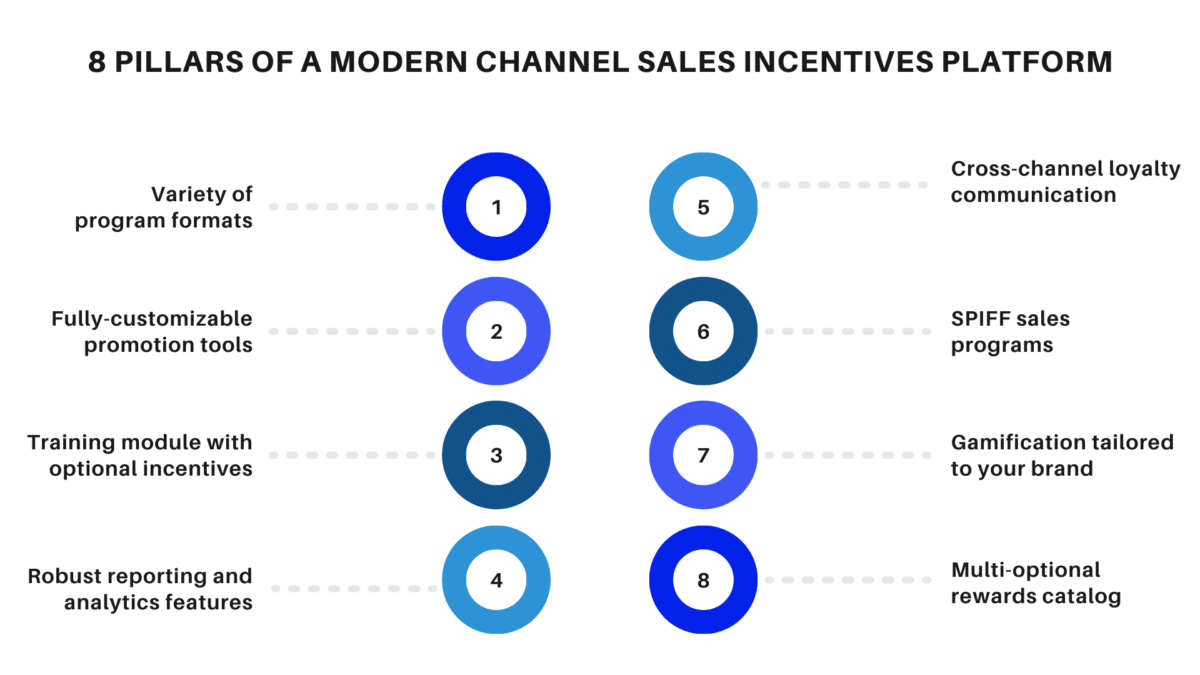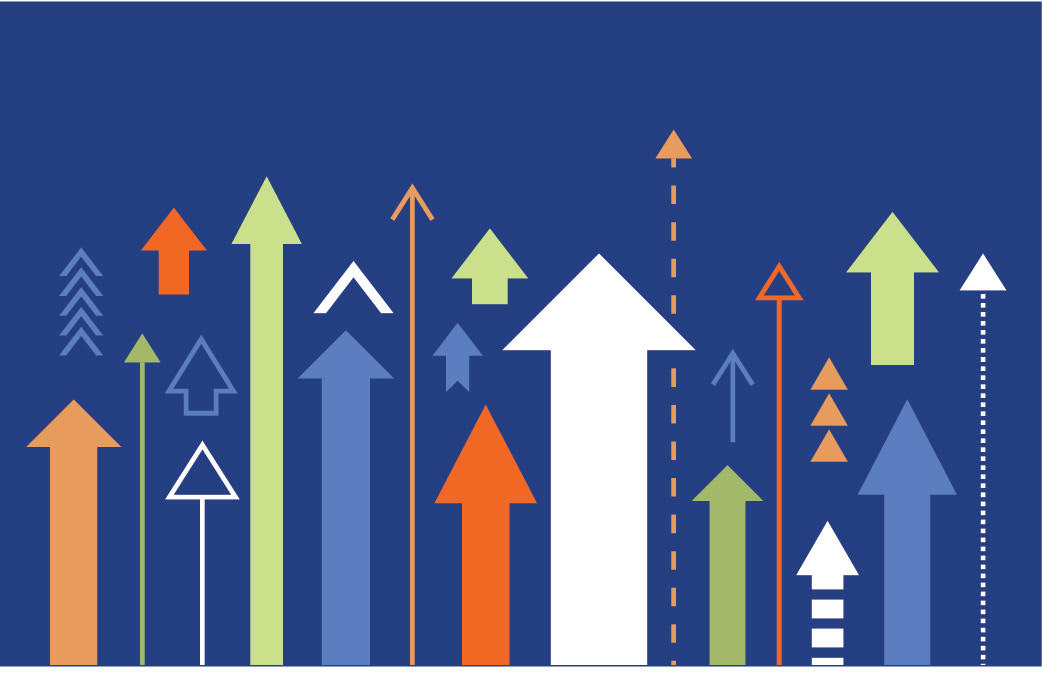Win The Market During The Economy Slowdown
Manufacturers and distributors are constantly looking for the edge to increase sales of products and services. Many start by nurturing the relationship between provider and retail businesses. There are a number of ways to improve and increase loyalty, distribution, and sales, but one of the most effective ways to create a lasting business bond is through various channel incentive programs.
However, not all channel incentive programs are equally efficient. As the economy slows down, companies have to be especially selective when choosing channel incentive options.
Depending on your goals, whether it’s cost optimization, or seizing the opportunity to grow your market share, you might want to utilize a particular mix of programs and prioritize them accordingly. To make this possible, you need to select a flexible channel incentive platform with a rich set of communication tools and reward categories.
In this article, we propose considering six types of B2B channel incentive programs that could help drive both channel and final consumer loyalty in most business spheres.
1) Rebates
Rebate programs are tried and true. They allow manufacturers to offer bulk promotions for specific items, which channel partners can order and then get a percentage back on. Rebates are often provided as a debit card reward to help channel partners avoid extra overhead costs.
Most manufacturers offer some form of a rebate program, to varying levels of success. When executed well, rebate programs can be very rewarding for manufacturers. Rebate programs have been around for a long time, and often the tracking and implementation of these programs is antiquated. Finding a channel incentive company to help you simplify and streamline the rebate process is key.
2) Sales Performance Improvement Funding Formula (SPIFFs)
SPIFF programs are a subcategory of sales quota attainment programs. A company provides a reward to a particular seller (shop, sales representative, dealer). In contrast to the sales commission, based on total sales revenue, SPIFFs are linked to a specific brand, service, or product category.
SPIFFs could be provided through merchandise, cash, or gift cards, but you need to make sure the rewards are attractive for this type of channel incentive program to work. The reward needs to be distributed as close to the sale as possible for this method to work for performance improvement.
SPIFFs work well for managing product stock and setting goals to outperform competitors. SPIFFs are an efficient, super flexible tool for achieving short-term goals within a strategically designed incentive program. They can help establish a strong market position and build long-term partner loyalty.
3) Referral Incentives
Companies that run referral channel programs provide rewards to partners that managed to discover new business opportunities for them. A company partner submits a lead, and if it qualifies as a good opportunity, both companies start working together to turn this lead into a customer.
Referral incentives are assigned to a partner in case of successful deal closure and could be provided as gift or debit cards, or as points for a rewards catalog.
Referral, or deal registration incentives, could be a powerful tool for getting more control over the way your channel partners sell to the final consumers. You can provide all the necessary support and information your partner otherwise might have been lacking.
4) Market development funds (MDFs)
MDFs are investments companies make to boost outcomes of sales and marketing efforts their channel partners make.
You can increase your market share by funding some of your channel partner activities, like events of participation in a tradeshow, or providing partners with the necessary information and know-how for organizing webinars and other content marketing efforts.
MDFs help producers increase their market share due to the synergy created through cooperation with their partnering companies’ sales and marketing teams.
5) Training and education incentives
There is a clear link between how well your channel partner representatives know your product, and how successfully they sell it.
Companies make significant efforts to ease the educational process, implement specialized mobile-friendly portals, add gamification to make learning more fun. However, given the number of manufacturers competing to convince salespeople to spend their spare time in front of screens educating themselves about features of another product, convenience and fun are no longer enough to provide a substantial motivation.
Assigning a part of your budget to incent participation in training programs will create the necessary motivation. Training and education incentives are an excellent way to support your partners during forced downtimes like the one caused by the COVID-19 outbreak. In the long run, these investments will contribute to strengthening your positions on the market.
Advanced platforms for B2B partner incentives offer an integrated set of features that allow managers to reward partners for the necessary achievements and behavior, including successful completion of a training program.

6) Activity-based rewards
Besides sales and marketing, you can cooperate with your channel partners in fields that require on-spot personnel or do not fall within your core business areas. Depending on the sphere of your business, it could be warranty registrations, demo scheduling, product bundling, managing your contracts with stores, and much more.
This could be an additional opportunity for your partners could gather valuable information on your end consumers’ behavior and preferences.
To get channel partners on your side, vs. your competitors’ side, you need to make your activity-based rewards program visible and attractive for them. Finding the right channel incentives technology partner will ensure that communication with partners is optimized, so they can see all the benefits and take advantage of your program, benefiting both parties.
Summary
Providing incentives to channel partners can be a “win-win” situation that increases sales for you and your resellers.
While the right mix of incentive programs provides a basis for relationships with your channel partners, the strategic partner you choose on the technology front can make or break its financial outcome. You need to ensure that it’s easy to sign up for the program, that communications participants in a timely manner, and that the analytics are clear and actionable.
As a company with years of experience in the field of B2B marketing, Online Rewards can help you create and customize a channel incentive program that specifically fits your business model and increases long-term profits for your business.

